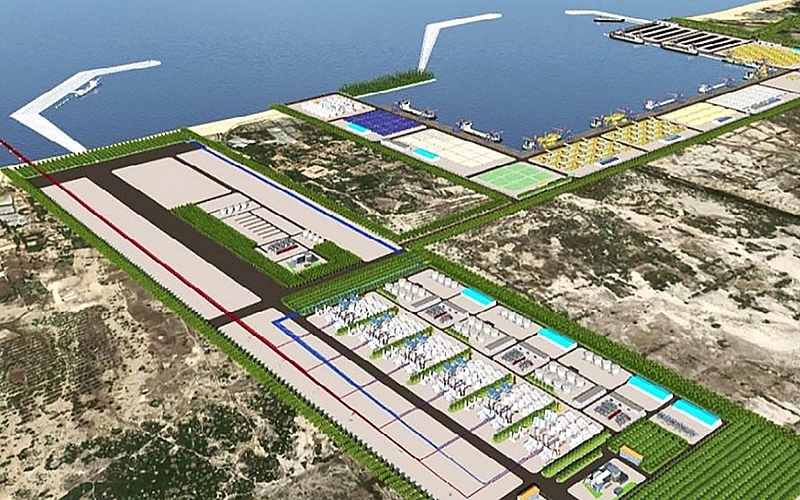Korean consortium close to winning $4.8 billion Hai Lang LNG power plant
 |
| The Korean-Vietnamese consortium is awaiting approval for Hai Lang LNG power plant |
Previously, in early August, the consortium was the only participant to submit a bid for the plant at a tender organised by Quang Tri People’s Committee. As the sole candidate, the consortium is certain to win the bid to become the project investor.
The near $5 billion LNG power project involves building an LNG power plant with a capacity of 1,500MW. Total project cost is expected to reach $4.8 billion with the inclusion of the second and third phases.
The investor plans to expand LNG power capacity to 4.1GW by 2025. The figure is expected to increase to 47.8GW by 2040 and 59GW by 2045 to meet the surging power demand amid the rapid economic growth.
The three Korean investors have been planning the project since December 2019. At the time, they signed an agreement to join work on a liquefied natural gas (LNG) project in Vietnam with a specific task for each investor. Notably, Hanwha Energy would take the leading role in supervising overall business development and supply LNG in Vietnam. KOGAS would be in charge of constructing and operating the LNG terminal, as well as providing technical support, while Kospo would extend its expertise and know-how in the construction and operation of LNG power plants.
Joining Hai Lang LNG power plant is a milestone in the expansion of both Hanwha and KOGAS in Vietnam.
Hanwha Energy has been operating the KN Cam Lam and Cam Lam VN solar power plants in Khanh Hoa province since 2019. Besides, the company acquired a 10 per cent stake in Bamboo Capital Group in June 2019 to set a solid foot in the solar power sector in Vietnam.
Regarding KOGAS, the company is working with Energy Capital Vietnam – a US-based company to develop a 3,600MW LNG complex power plant in the Mui Ke Ga area in Binh Thuan province.
LNG consumption in Vietnam is expected to grow at a robust average annual rate of 10 per cent over the next decade, driven by government efforts to gradually diversify away from coal in favour of cleaner alternatives, and the introduction of several LNG import projects to supplement declining domestic production.
What the stars mean:
★ Poor ★ ★ Promising ★★★ Good ★★★★ Very good ★★★★★ Exceptional
Related Contents
Latest News
More News
- Japanese business outlook in Vietnam turns more optimistic (January 28, 2026 | 09:54)
- Foreign leaders extend congratulations to Party General Secretary To Lam (January 25, 2026 | 10:01)
- 14th National Party Congress wraps up with success (January 25, 2026 | 09:49)
- Congratulations from VFF Central Committee's int’l partners to 14th National Party Congress (January 25, 2026 | 09:46)
- 14th Party Central Committee unanimously elects To Lam as General Secretary (January 23, 2026 | 16:22)
- Worldwide congratulations underscore confidence in Vietnam’s 14th Party Congress (January 23, 2026 | 09:02)
- Political parties, organisations, int’l friends send congratulations to 14th National Party Congress (January 22, 2026 | 09:33)
- Press release on second working day of 14th National Party Congress (January 22, 2026 | 09:19)
- 14th National Party Congress: Japanese media highlight Vietnam’s growth targets (January 21, 2026 | 09:46)
- 14th National Party Congress: Driving force for Vietnam to continue renewal, innovation, breakthroughs (January 21, 2026 | 09:42)

 Tag:
Tag:


























 Mobile Version
Mobile Version